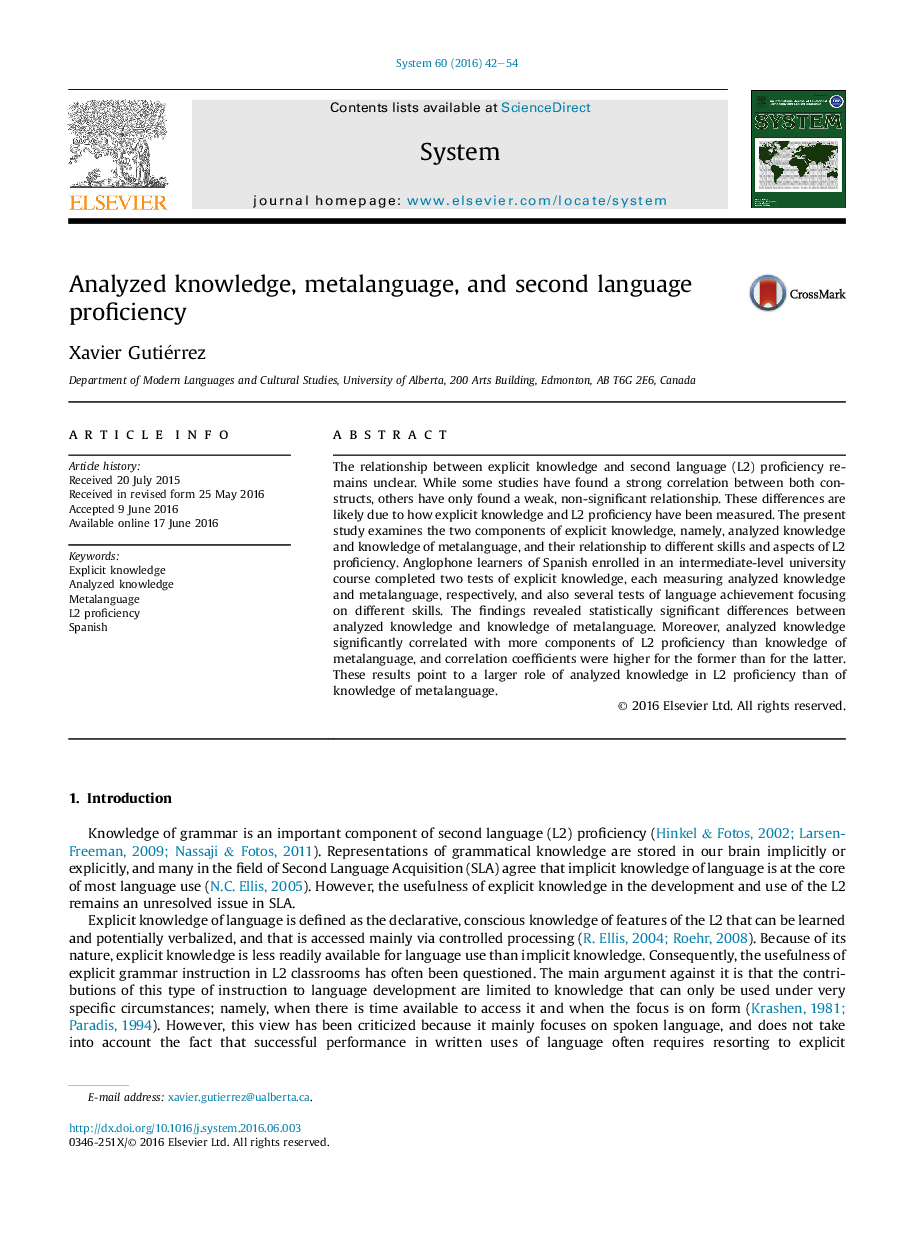| Article ID | Journal | Published Year | Pages | File Type |
|---|---|---|---|---|
| 372886 | System | 2016 | 13 Pages |
The relationship between explicit knowledge and second language (L2) proficiency remains unclear. While some studies have found a strong correlation between both constructs, others have only found a weak, non-significant relationship. These differences are likely due to how explicit knowledge and L2 proficiency have been measured. The present study examines the two components of explicit knowledge, namely, analyzed knowledge and knowledge of metalanguage, and their relationship to different skills and aspects of L2 proficiency. Anglophone learners of Spanish enrolled in an intermediate-level university course completed two tests of explicit knowledge, each measuring analyzed knowledge and metalanguage, respectively, and also several tests of language achievement focusing on different skills. The findings revealed statistically significant differences between analyzed knowledge and knowledge of metalanguage. Moreover, analyzed knowledge significantly correlated with more components of L2 proficiency than knowledge of metalanguage, and correlation coefficients were higher for the former than for the latter. These results point to a larger role of analyzed knowledge in L2 proficiency than of knowledge of metalanguage.
